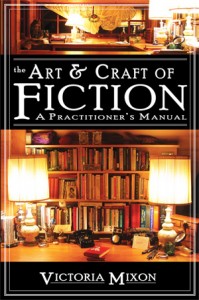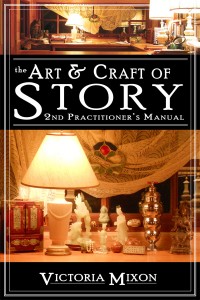I’m not here this week, which is why you can’t see me right now.
But that doesn’t mean the conversation won’t go on. We’ve been talking this month about How You First Got into Writing and How Many Degrees of Separation You Are from Your Literary Idols.
And today I’m going to ask you to bare your soul:
What does writing mean to you?
I do so much of this work—and have been doing it for so very long—that sometimes I lose track of what it means to me in the greater scheme of things. I’ll be drawing cartoons with my son, or reading something wonderful about gardening, or fainting over the glasswork of Dale Chihuly, and I’ll think, Fabulous! Now I know what I want to do with my life!
I forget, for a moment, that I’m into the second half of my personal century and that means—guess what?—I already decided what I want to do with my life.
And I talk about it. . .all. . .the. . .time.
So I have to take a little while to sit down, be quiet, and remember why. What is it about writing? What is it, specifically, about storytelling? Why do I do what I do?
It’s the truth inside it. The truth about being alive.
Storytelling is the perfect marriage of the right and left hemispheres of the brain. At this point in the history of literature, we’ve honed this profound art to a craft of exquisite proportions. We know so much, now, about creating effects through the written word. We’ve developed so many techniques for inspiring visceral responses in readers. A great many of those techniques we can use with mathematical precision, the tangible formula of human experience.
We are such simple creatures, really. Just the two parts: the body, which responds to exquisite craft, and the soul, which responds to art.
I love that storytelling makes sense of life by making a pattern of the two halves. In a world where every aspect of reality creates the inherent need for its opposite, only in philosophy and art can we ever hope to transcend such impossible paradox.
And in storytelling, we get to transcend it with words.
I love paradox. I love words. But most of all, I love using words to transcend paradox, to cast myself out of the limits of reality into a greater truth beyond.
That’s why I’m here.
Think about it: what does writing mean to you?
 The Art and Craft of Fiction:
The Art and Craft of Fiction:
A Practitioner’s Manual
by Victoria Mixon
“The freshest and most relevant advice you’ll find.”—Helen Gallagher, Seattle Post-Intelligencer
“Wonderfully useful, bracing and humorous. . .demystifies essential aspects of craft while paying homage to the art.”—Millicent Dillon, five time O. Henry Award winner and PEN/Faulkner nominee
“Teeming with gold. . .makes you love being a writer because you belong to the special club that gets to read this book.”—KM Weiland, author of Outlining Your Novel
 The Art and Craft of Story: 2nd Practitioner’s Manual
The Art and Craft of Story: 2nd Practitioner’s Manual
by Victoria Mixon
“This book changed my life.”—Stu Wakefield, Kindle #1 best-selling author of Body of Water and Memory of Water
“Opinionated, rumbunctious, sharp and always entertaining. . .lessons of a writing lifetime.”—Roz Morris, best selling ghostwriter and author of Nail Your Novel
“As much a gift to writers as an indispensible resource. . .in a never-done-before manner that inspires while it teaches. Highly recommended.”—Larry Brooks, author of four bestselling thrillers and Story Engineering
“I wish I’d had The Art & Craft of Story when I began work on my first novel.”—Lucia Orth, author of the critically-acclaimed Baby Jesus Pawn Shop
